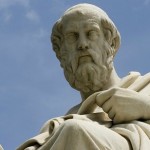We run our website the way we wished the whole internet worked: we provide high quality original content with no ads. We are funded solely by your direct support. Please consider supporting this project.
What is the significance of Jonah 1:2; 3:2, 4–10; 4:2?
God “changed his mind” (3:10) about the destruction he planned to carry out on Nineveh.
If all events in history are eternally settled and known by God as such, his word to Jonah that he planned to destroy Nineveh in forty days was insincere as was his inspired testimony that he in fact changed his mind about his planned judgment. It is interesting to observe that while some today think that being willing to change one’s mind evidences a weakness and thus can’t be attributed to God, Jonah recognized that this willingness was one of God’s attributes of greatness (4:2).
Category: Q&A
Tags: Open Theism, Q&A
Topics: Open Theism
Verse: Jonah 1, Jonah 3, Jonah 4
Related Reading

How do you respond to Job 1:21?
“…the Lord gave, and the Lord has taken away; blessed be the name of the Lord.” This passage is often quoted as the proper attitude pious people should assume in the face of tragedy, with the implication that all tragedy is the Lord’s doing. This teaching lands hard on the ears of parents who have…

Dealing With Objections to Open Theism, Part I
There are four major objections to Open Theism. Today we will deal with the first two and then tomorrow the third and fourth. For a basic introduction to Open Theism, click here. Objection #1: The open view denies omniscience. It is often argued that the open view denies the omniscience of God, even saying things…

Is Your Christianity Shaped by Plato or the Bible?
The Timaeus is a work that Plato wrote that addresses the questions: “What is that which always is and has no becoming, and what is that which becomes but never is?” (Tim. 28a)? These questions contain one of the most influential – and, in my opinion, one of the most disastrous – philosophical ideas of…

How can you put your trust in a God who’s not in control of everything?
Question: I read your book Is God to Blame? and found it to be very compelling. It’s rocking my world. But I’m also finding I’m now having trouble trusting God like I used to. I used to believe that God ordained or at least foreknew all that was going to happen. Now I’m questioning this,…

Did Free Will Evolve? (podcast)
Greg considers how free will emerged from the churning chaos of evolution.. Episode 613 http://traffic.libsyn.com/askgregboyd/Episode_0613.mp3
